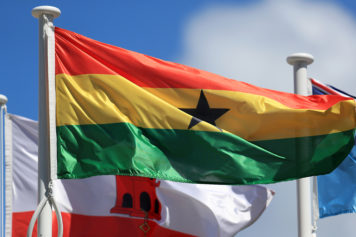The Economist once labelled Africa “The Hopeless Continent.” In a U-turn it then granted Africa the label “Hopeful Continent.” Ghana is now the fastest-growing economy on the “Hopeful Continent.” More and more, the prospects for African countries are beginning to stir exciting opportunities for investors and capitalization prospects. Significantly, the USAID has identified Ghana’s openness to dialogue a vital ingredient to its development so far. Commentators have recently iterated that considering the rapid growth Ghana is experiencing, her democracy is arguably stronger than even that of South Africa.
The story makes for an ideal “read,” with Ghana achieving independence in 1957 and turning the former “Gold Coast” into a mechanism for economic development. Since and through exploration, Ghana has discovered a wealth of oil reserves that has formed the crutch for an economic growth trajectory the country has not experienced to date.
With a population of 24.6 million people, Ghana is set to reach 27 million people by 2020. With a rich heritage, Ghana has more than 100 different ethnic groups making it one of the most diverse countries on the African continent. A positive spin of colonialism is that the official language is English.
Recently, the IMF (International Monetary Fund) estimated that by 2015 seven (7) of the top ten (10) fastest growing economies will be in Africa. In 2012 Ghana had the fastest-growing economy, pegging growth at annual growth rate of 13.5 percent and hitting highs of 17 percent. Despite the slow growth, Ghana is still forecast to reach annual growth of 8.3 percent in 2013, averaging above all other African countries. Oil was not the only revenue node for Ghana, which is leveraging off the mining industry significantly, including of gold, manganese and diamonds as major exports.
Currently, 60 percent of Ghana’s exports are from the mining industry resources. From the agricultural sector, pineapples, mangos and bananas are large export produce.
The main reason for the growth hike in development and inflow of capital has been the discovery of “black gold” – oil. This has attracted significant foreign investment, exposing a hive of additional opportunities that this country has to offer.
Almost two years ago Ghana started producing oil from the offshore Jubilee field. There are two licenses to this oil field. The latest studies estimate that Ghana’s reserves lie somewhere between 780 million and 4000 million barrels. Production can be pegged at 120,000 barrels a day and can be sustained for 20 years. On average this can yield $1.8 billion annual revenue, significant enough for a country of its size. Ghana’s potential reserves also are significantly lower than that of global suppliers, for example Saudi Kingdom with 265 billion barrels.
Thus Ghana’s reserves form the foundation for significant contribution to speed up economic recovery and development and set up sovereign infrastructure that will benefit the generations to come and serve future economic activity. The government has set in place policies and systems that are helping the country leverage from trade. The Ghanaian government has apportioned 5-20 percent of oil revenues to be allocated to a stabilization fund, yielding a safety net for future fiscal shocks that are eminent due to the current state of the global fiscal climate.
From an infrastructure perspective Ghana generates much of its revenue via her ports. In addition, with a storage capacity of 124,000,000 acre-feet (153,000,000,000 cubic meters) of water, Ghana’s Lake Volta is one of the largest man-made lakes in the world. It generates via her hydro-power plant, 2000MW of power, and this will increase to 5000MW in 2020.
Ghana has also established increasing revenues from other sectors, namely; textiles, fashion, natural fibers, tourism, crafts and the service industry in general…
Read More: ventures-africa.com


